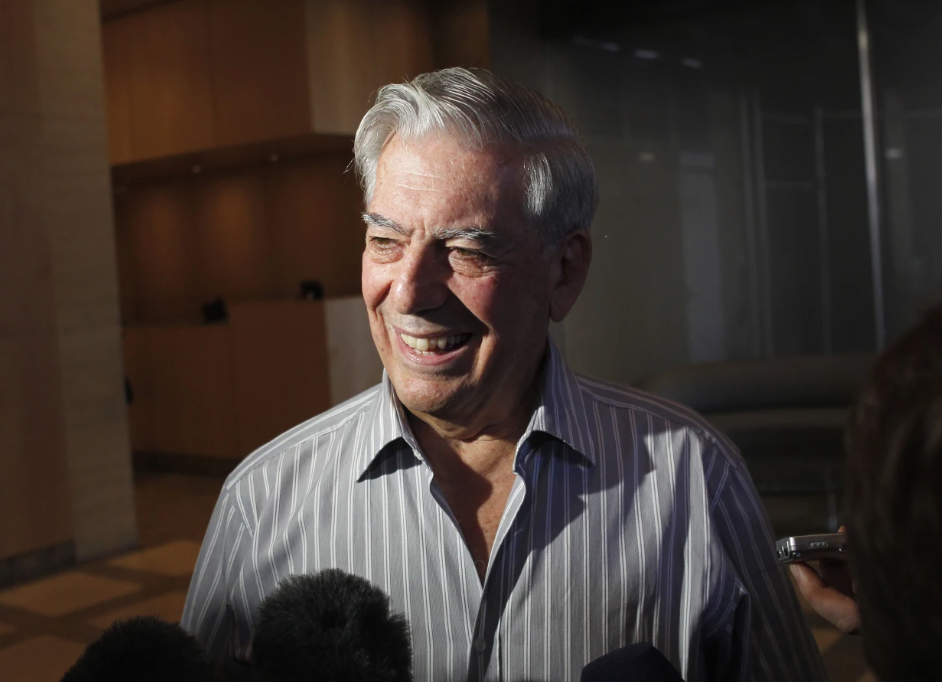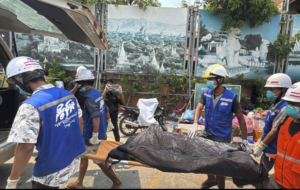Mario Vargas Llosa, the celebrated Peruvian novelist and Nobel Prize winner, passed away peacefully on Sunday in Lima at the age of 89. Surrounded by family in his final moments, Vargas Llosa leaves behind a towering literary legacy that reshaped Latin American literature.
His children—Álvaro, Gonzalo, and Morgana—shared a heartfelt message online, announcing his death. “His departure will sadden his relatives, his friends and his readers around the world,” they wrote, “but we hope that they will find comfort, as we do, in the fact that he enjoyed a long, adventurous and fruitful life, and leaves behind him a body of work that will outlive him.”
Vargas Llosa’s close friend and attorney, Enrique Ghersi, recalled the writer’s 89th birthday just weeks earlier, celebrated in the home of his daughter Morgana. “He was happy, surrounded by his closest friends. We even joked that there were still 89 more years to go,” Ghersi said.
Known for masterpieces like The Time of the Hero (La Ciudad y los Perros) and The Feast of the Goat, Vargas Llosa earned global acclaim for his powerful narratives and political insight. When he was awarded the Nobel Prize in Literature in 2010, it was in recognition of “his cartography of structures of power and his trenchant images of the individual’s resistance, revolt, and defeat.”
His literary career began in the late 1950s with The Cubs and Other Stories, but it was his 1963 debut novel The Time of the Hero, based on his time at a Peruvian military academy, that catapulted him to fame. The book angered the country’s military, which publicly burned a thousand copies and branded him a communist.
That bold debut placed him at the forefront of the Latin American literary “Boom” of the 1960s and ’70s, alongside peers like Gabriel García Márquez and Carlos Fuentes. His novels—often brutal, ironic, and richly political—explored themes of authoritarianism, identity, and the clash between tradition and modernity.
As a young man, Vargas Llosa worked as a part-time crime reporter, language teacher, and even revised cemetery records in Peru. Throughout his life, he remained an active commentator on politics, publishing a regular opinion column titled Piedra de Toque (“Touchstone”).
His political views evolved significantly over the years. Initially a supporter of the Cuban revolution, he later denounced Fidel Castro’s regime and moved toward staunch support for liberal democracy and free markets. This shift alienated many former allies, especially on the Latin American left. A symbolic break came in 1976, when he famously punched García Márquez in Mexico City. The cause of the dispute remains a mystery, as neither ever discussed it publicly.
Born in Arequipa, Peru, in 1936, Vargas Llosa spent his early years in Bolivia with his mother and grandmother, believing his father had died. At age 10, he discovered his father was alive and the family reunited in Lima. His father, a strict disciplinarian, disapproved of his literary ambitions and tried to steer him toward a military life. That effort led Vargas Llosa to the Leoncio Prado Military Academy—a place he later described as “hell,” but also the setting that inspired The Time of the Hero.
He went on to study literature and law at San Marcos University in Lima, though he only pursued law to satisfy his family’s expectations. After earning his degree in literature, he moved to Spain for his doctorate and began building his global literary career. Despite drawing deeply from Peruvian life, he preferred to live abroad in cities like Madrid, Paris, and New York.
His works captured a vivid range of realities—from the brutality of military life to the struggles of indigenous communities—always delivered with a sharp sense of political consciousness. “Peru is a kind of incurable illness and my relationship to it is intense, harsh and full of the violence of passion,” he wrote in 1983.
Vargas Llosa briefly returned to Peru in the 1970s and later entered politics. In 1990, he ran for president during a time of national crisis, but lost to Alberto Fujimori, a political newcomer who brought initial stability before becoming known for authoritarian rule.
Over the years, Vargas Llosa also turned his narrative talents toward historical fiction, writing about figures such as painter Paul Gauguin, feminist Flora Tristan, and Irish revolutionary Roger Casement. His final novel, Harsh Times (Tiempos Recios), was published in 2019 and dealt with Cold War-era political upheaval in Guatemala.
A longtime member of the Royal Spanish Academy, he taught at numerous universities worldwide and was honored for both his fiction and essays. His private life also made headlines: he married twice, first to Julia Urquidi—an older woman who inspired his novel Aunt Julia and the Scriptwriter—and later to his cousin Patricia Llosa, with whom he had three children. In later years, he had a high-profile relationship with Spanish socialite Isabel Preysler.
Vargas Llosa’s family confirmed there will be no public funeral. His remains will be cremated, in accordance with his wishes.













